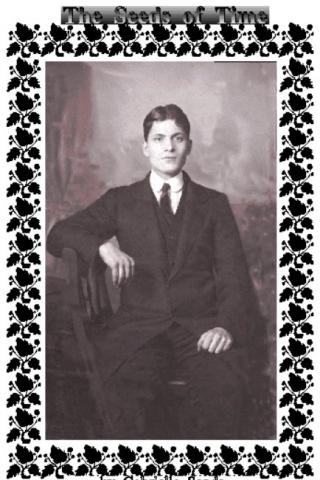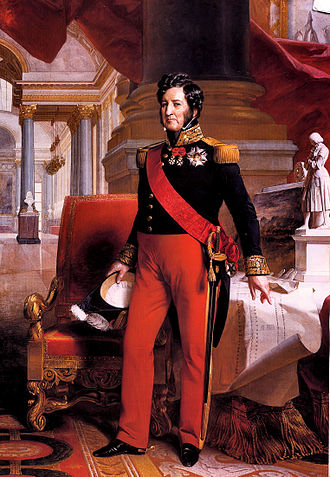My Great-Grandfather,
Jean Baptiste Cattier, who composed
'Tra-ra-ra-Boom-de- ay'
Prologue
Here is a young man who left his home in Birmingham
Many years ago to seek his fortune in London.
His mother died when he was 10 years old
And four years later his father married again.
With suitcase in hand Henry Cattier,
"Harry" to his friends, came to London
and waited for adventures to unfold.
"The streets there are paved with gold,"
He had been ardently told.
Yes, this had given him the confidence
To make the sad move:
His independence and worthiness he had to prove.
This led him to being brave and bold.
He did not get on with his step mother,
Which led him to this ultimate move,
Being the only son of his father’s second (or third) short marriage,
Half brothers ( he did not dare think of sisters)
Would oust him further from his father’s generous affections?
Henry's father, Jean Baptiste Cattier, was a French
Aristocrat; who escaped to London from Paris around1848:
That City was taken over by the Communist orientated Prussians of Emperor Louis-Bonaparte111, and France's became a Republique...he was the nephew of Bonapart, Napolian, the first.
Introduction
I have written this story in poem form to celebrate the memory of my dear Grandfather, Harry, who confided in me this intriguing story of his French aristocratic father.
One has to remember that for hundreds of years England and France had been enemies, and the very mention of anything French would stir up old hatreds. My grandmother, Alice, would not discuss their Grandfather, Jeane Baptiste, with her three children. This has always been a mystery to me and leads me to me suspect that she had an intense dislike for the French, even though she married my Grandfather, who was half French. She was of truly English parentage, who remembered the conflicts between their two countries. I also suspect that fear of reprisals was always at the back of her mind.
It was not until I was ten years of age and had began writing music, that she got a picture of her father in law out of her dressing table draw and told me he was a very clever man and came to England with two fortunes. My grandfather did the same shortly afterwards, but showed me a hand written piece of music and and told me his father had written it. He warned me not to discuss the story with any one, especially my Grandmother who would tear it up. So young was I to be given a glimpse of the past and not allowed to discuss it - not even with my parents. It was not until I married and my Grandfather told my musician school teacher husband the same story, that true thought began to provoke me into investigating. My husband was dancing Tra-ra-ra Boom-de-ay outside my grandparent's bedroom door, at their maisonette in Debden, when my poor 86 year old grandfather jumped out of his chair and shouted for all the family to hear; "You've been to my bedroom and been to my cupboard beside my bed!" which he must have kept locked. When he died the following year, aged 87, I never thought to ask my grandmother to let me have the piece of paper. I suppose I must have thought she had destroyed it.
After my grandmother's death some years later at the age of 93 my mother said that My father's brother who was the eldest out of the four children, had this piece of hand written tune in his hand when the family went to sort out the contents of the maisonette. She regrets that she did not ask for the piece of music for me. I expect my uncle, not realising the importance of the piece of paper to his late father, destroyed it. I often wonder why there was no curiosity shown about the piece of hand written music. I would have loved to have owned it, and would like to believe I would have treasured it as a heirloom momentum to my families ancestry. Henry, my uncle and father's brother, denied all knowledge of it and said when I eventually told them the story my grandfather related to me a while "Can Can", so he wrote it."
When I was ten years old, I heard the "Can Can" being played on the radio and pressed my ear to the speaker and afterwards the commentator said: "We don't know who wrote 'Tra ra ra ra Boom-de-ay', wish we did! It was not Henry J Sayer." I thought: Well, I do, but I mustn't say anything!
I am telling the story now to set the record straight.
They came. They fought.
The workers marched for days.
They conquered and plundered.
Then they march on to storm Paris.
They pilfered. They plundered.
They besieged the King's Palace.
They destroyed the arts; and every book.
Then they brought Paris to it's knees.
From that day on France never had another Sovereign.
The same happened during the uprising of 1872 which led to the Franco Prussian war.
The 19th Century was a very turbulent one for France.
during 1826 they had a King CharlesX who abdicated in 1830; this was the time Jean Baptiste was growing up, born during 1826. The Kings proved weak and ineffective, paving the way for the Bonapartes.
Jean Baptiste played the violin, wrote music and was a translator in the French Royal courts, my grandparents told me.


Henry Cattier, Jean Baptiste's son by Mary Anne Beck his third wife.
.
Paris. 1848
A Tale of Two cities.
The workers are storming the city,
Plundering, burning buildings and books.
Murdering, Raping, Pillaging, Looting.
Harry's father, Jean Baptiste, had to flee for his life.
Out of Paris he fled, leaving all behind,
Clutching two fortunes in both hands.
He had to leave his beloved violin behind;
He had been a court musician and language translator.
In fact he was a very clever young man
who could speak many languages
and occasionally wrote music.
Young Jean was going to miss the high aristocratic life
of King Louis Philippe's Royal Court.
The King had painstakingly tried to govern France and Paris
but it's glory was crumbling; and a coupe de etac threatened which did take place during the year of 1852 AD.
For some ten years he reigned.
Jean wondered what would become of the King, who settled in England, exiled from France - the same happened to the Emperor Bonaparte during the Franco Prussian war of 1872; who fled with his wife Eugenie and their son Eugene, settling in the South of England
Jean also hated to think of the plight of the beautiful court
Ladies who admired his aspiring good looks,
intelligence, and good fortune; they also revelled in his music and wit. He wrote little tunes for them.
One such tune he wrote was 'Tra - ra - ra Boom-de-ay';
He had written it when he was in a "mood jove"
surrounded by a circle of lovely ladies.
At the tender age of seventeen
he had no particular strong attachments -
Even less likely now in the wake of what was happening.
He did have his eye on one, a lady of good breeding who
He was sure was ready to return his affections. That
mite not happen now. (We think his first marriage was in France)